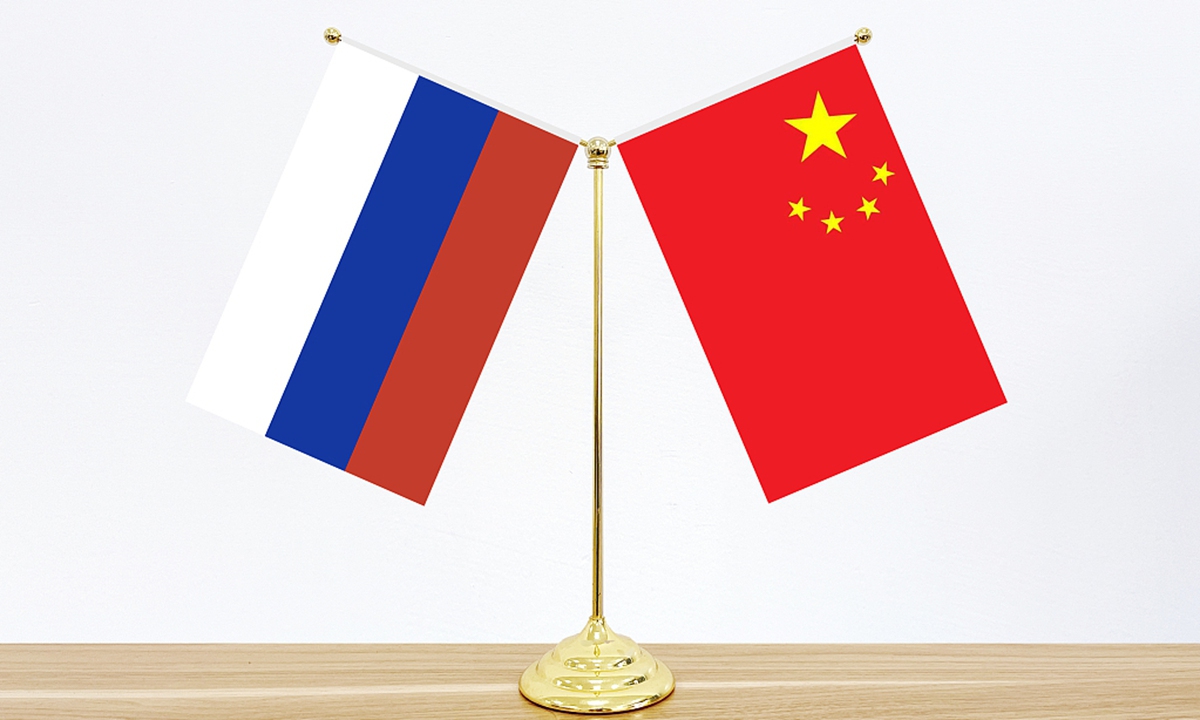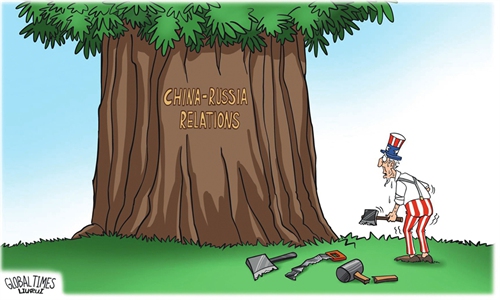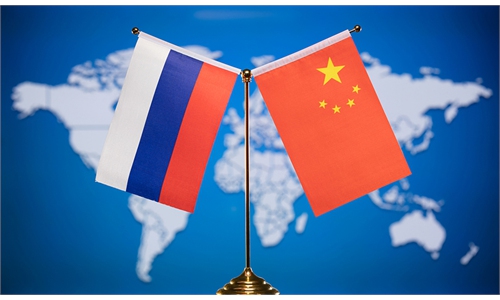Russian PM’s China visit to chart out new avenues for economic cooperation
Deepened ties in high-tech, finance, e-commerce set to inject new impetus into 2024 trade

China Russia Photo:VCG
Russian Prime Minister Mikhail Mishustin is paying an official visit to China starting from Tuesday, which observers said will consolidate fruitful pragmatic cooperation in sectors ranging from energy, logistics, infrastructure and agriculture to bulk commodities and chart out new avenues for the elevation of economic ties next year.
As the two neighbors have achieved the goal of reaching $200 billion in bilateral trade one year ahead of schedule, analysts expect that cooperation in such newly emerging fields as high-tech, finance and e-commerce will inject new impetus into driving bilateral trade to "hit another new record" in 2024. The trend could further promote industrial cooperation and supply chain integration, which carries great significance in the face of a decoupling push and major changes in the global political economic order, they noted.
Mishustin will be in China on Tuesday and Wednesday for the 28th regular meeting between the Chinese and Russian heads of government, China's Foreign Ministry announced.
It is the second time for Mishustin to visit China this year, after he led a government delegation to China in May. It also comes amid a flurry of high-level exchanges between the two nations this year that further strengthened political mutual trust.
On Tuesday, under the witness of Chinese Premier Li Qiang and Mishustin, China and Russia signed a memorandum of understanding, vowing to carry out exchanges and cooperation in antimonopoly, unfair competition and advertising.
During the visit, "special attention will be paid to the expansion of trade and economic cooperation and the promotion of large-scale joint projects in various areas. The (two) sides plan to adopt a joint communique and sign a number of Russian-Chinese bilateral documents," Russian news agency TASS reported, quoting the Russian government.
Observers said one of the focuses of the visit will be to explore and amplify new areas for cooperation. Both countries have shown a strong willingness to deepen such cooperation amid the West's decoupling practices and unilateral crackdowns, which have raised the urgency to ensure both countries' economic security.
"It could be seen that cooperation between China and Russia has become more pragmatic this year," Song Kui, president of the Contemporary China-Russia Regional Economy Research Institute, told the Global Times on Tuesday. He pointed to a number of highlighted sectors whose development has gained momentum this year.
In March, China and Russia issued the Pre-2030 Development Plan on Priorities in China-Russia Economic Cooperation, which identified eight focal areas for cooperation, including energy, logistics, bulk commodities, industry and agriculture.
Observers noted that energy trade has continued to serve as a "cornerstone" in China-Russia bilateral economic relations this year, and has also been a major driver behind a surge in bilateral trade. In the first 11 months of 2023, China-Russia trade grew 26.7 percent year-on-year to a record of $218.2 billion, exceeding $200 billion for the first time in history.
At the 20th meeting of the China-Russia Energy Cooperation Committee held in Beijing last week, Chinese Vice Premier Ding Xuexiang called for enhanced high-quality energy cooperation with Russia. Ding called on the two sides to promote the construction and stable operation of oil and natural gas projects, and build nuclear energy projects with high standards and high quality, the Xinhua News Agency reported.
Joint infrastructure construction and logistics links sped up in 2023, partly boosted by Russia's Far East development strategy, according to Song. Significant progress has also been made in terms of local currency settlement.
Yuan settlements now account for a large proportion of China-Russia trade, which has promoted the internationalization of the Chinese currency, observers added.
With regard to how bilateral cooperation will move forward following Mishustin's visit to China, Zhang Hong, a research fellow at the Institute of Russian, Eastern European and Central Asian Studies of the Chinese Academy of Social Sciences, told the Global Times on Tuesday that it is expected that through the meeting, more support mechanisms could be established to bolster bilateral exchanges in innovation and technology.
Zhang added that the two sides have been working closely to advance the innovative development of crucial science and technology fields such as the new-energy sector and carbon emissions. This will provide "enough steam" to propel the growth of bilateral trade in quality, industry insiders said.
E-commerce is also seen by industry insiders as a promising field to fuel further gains in bilateral trade.
Simon Huang, managing director of Russian online retailer Ozon's China division, told the Global Times on Tuesday that sales of Chinese goods in Russia have risen about 500 percent year-on-year in 2023, led by upticks in consumer electronics, small home appliances, clothes and accessories.
"We plan to achieve three-fold growth next year, and leverage the scale effect to further improve efficiency and bring down costs," Simon said.
Observers anticipated that economic cooperation between China and Russia will steadily move from just commodity trade to comprehensive industrial-level cooperation.
"This is the key to promote the free flow of industrial production factors and information, and support people-to-people exchanges. It also bodes well for the stable and sound long-term development foundation of bilateral economic and trade relations," Song noted.
Song expected bilateral trade to show "a big expansion" next year and continue to set records.
Russian President Vladimir Putin has estimated that trade with China may reach a record $230 billion this year, which he said is "a very decent level," the South China Morning Post reported.


